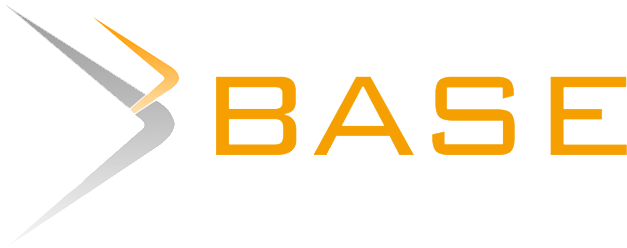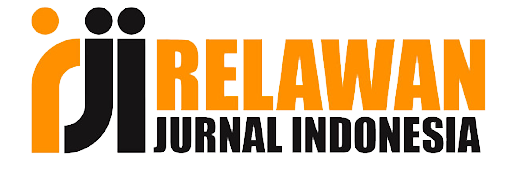Meta-analisis CBT Online dan Tatap Muka (Luring) Untuk Meningkatkan Self-Esteem
Abstract
This study uses a meta-analysis review method from 18 research journals from 2011 to 2021. The purpose of this meta-analysis is to measure the effectiveness of Cognitive Behavior Therapy (CBT) to increase self-esteem by moderating the type of CBT given to participants with online and face-to-face methods. The participants are 1,587 include of 810 control groups and 777 experimental groups. Results based on the data processing Mean (M), Standard Deviation (SD), and the number of participants (N) then found the value of effect size hedge's g = 0.729 (95% CI -1.214 to 2.673) with I^2 (inconsistency) = 97.63 % and Egger bias P = 0.112. The results show a large effect size and no publication bias. Thus, it can be show that Cognitive Behavior Therapy (CBT) with online and face-to-face Cognitive Behavior Therapy (CBT) as a moderator has a large effect size so that can be told that effective for increasing self-esteem in individuals.
Penelitian ini menggunakan metode meta-analisis melalui review dari 18 jurnal penelitian dari tahun 2011 hingga 2021. Tujuan dari meta-analisis ini yaitu untuk mengukur efektivitas Terapi Perilaku dan Kognitif untuk meningkatkan harga diri dengan moderator jenis Terapi Perilaku dan Kognitif (CBT) yang diberikan kepada partisipan dengan metode online dan tatap muka. Partisipan yang digunakan sebanyak 1.587 yang terdiri dari 642 kelompok kontrol dan 731 kelompok eksperimen. Berdasarkan hasil dari pengolahan data Mean (M), Standard Deviation (SD), dan jumlah partisipan (N) kemudian ditemukan nilai effect size hedge’s g= 0.729 (95% CI -1.214 to 2.673) dengan I2 (inconsistency) = 97.63% dan Egger bias P = 0.112. Hasil penelitian menunjukkan effect size large dan tidak ada bias publikasi. Secara keseluruhan, disimpulkan yaitu Terapi Perilaku dan Kognitif (CBT) dengan moderator jenis Terapi Perilaku dan Kognitif (CBT) online dan tatap muka memiliki large effect size sehingga dapat dikatakan efisien untuk meningkatkan harga diri individu.
Keywords
Full Text:
PDFReferences
Alessandri, G., Vecchione, M., Eisenberg, N., & Laguna, M. (2015). On the factor structure of the Rosenberg (1965) General Self-esteem Scale. Psychological Assessment, 27(2), 621-635. https://doi.org/10.1037/pas0000073
Cajanding, R. J. M. (2016). The Effectiveness of a nurse-led cognitive–behavioral therapy on the quality of life, self-esteem and mood among Filipino patients living with heart failure: a randomized controlled trial. Applied Nursing Research, 31, 86–93. https://doi.org/10.1016/j.apnr.2016.01.002
Cooper, H., Larry V. H., Jeffrey C.V. (2019). The handbook of research synthesis and meta-analysis. Russell sage foundation.
Dhandra, T. K. (2019). Does self-esteem matter? A framework depicting role of self-esteem between dispositional mindfulness and impulsive buying. Journal of Retailing and Consumer Services, 55. https://doi.org/10.1016/j.jretconser.2020.102135
Hur, J. W., Kim, B., Park, D., & Choi, S. W. (2018). A scenario-based cognitive behavioral therapy mobile app to reduce dysfunctional beliefs in individuals with depression: A randomized controlled trial. Telemedicine and E-Health, 24(9), 710–716. https://doi.org/10.1089/tmj.2017.0214
Horrell, L., Goldsmith, K. A., Tylee, A. T., Schmidt, U. H., Murphy, C. L., Bonin, E. M., Beecham, J., Kelly, J., Raikundalia, S., & Brown, J. S. (2014). One-day cognitive–behavioural therapy self-confidence workshops for people with depression: Randomised controlled trial. The British Journal of Psychiatry: The Journal of Mental Science, 204(3), 222-233. https://doi.org/10.1192/bjp.bp.112.121855
Khalek, A. M. (2016). Introduction to the psychology of self-esteem. Nova Science.
Kothari, R., Barker, C., Pistrang, N., Rozental, A., Egan, S., Wade, T., Shafran, R. (2019). A randomised controlled trial of guided internet-based cognitive behavioural therapy for perfectionism: Effects on psychopathology and transdiagnostic processes. Journal of Behavior Therapy and Experimental Psychiatry, 64, 113–122. https://doi.org/10.1016/j.jbtep.2019.03.007
Krisnamurthi, P. B. U., & Hanum, L. (2021). The effectiveness of online group cognitive and behavioral therapy on self-esteem and forgiveness in young adult women after romantic relationship break up. Proceedings of the International Conference on Psychological Studies (ICPSYCHE 2020), 530, 38–45. https://doi.org/10.2991/assehr.k.210423.006
Kukla, M., Davis, L. W., & Lysaker, P. H. (2014). Cognitive behavioral therapy and work outcomes: Correlates of treatment engagement and full and partial success in schizophrenia. Behavioural and Cognitive Psychotherapy, 42(5), 577–592. https://doi.org/10.1017/S1352465813000428
Kunikata, H., Yoshinaga, N., & Nakajima, K. (2016). Effect of cognitive behavioral group therapy for recovery of self-esteem on community-living individuals with mental illness: Non-randomized controlled trial. Psychiatry and Clinical Neurosciences, 70(10), 457–468. https://doi.org/10.1111/pcn.12418
Mansyur., & Iskandar, A. (2017). Meta-analisis karya ilmiah mahasiswa penelitian dan evaluasi pendidikan. Jurnal Scientifik Pinisi, 3(1), 72-79.
Marrero, R. J., Carballeira, M., Martín, S., Mejías, M., & Hernández, J. A. (2016). Effectiveness of a positive psychology intervention combined with cognitive behavioral therapy in university students. Anales de Psicología, 32(3), 728–740. https://doi.org/10.6018/analesps.32.3.261661
Mortan, O., Sütcü, S. T., & Köse, G. G. (2011). A pilot study on the effectiveness of a group-based cognitive-behavioral therapy program for coping with auditory hallucinations. Turk Psikiyatri Dergisi, 22(1), 26–34. https://doi.org/10.1142/9789814299633_0006
Palupi, E. P. D., Sunawan, S., & Murtadho, A. (2020). The effectiveness of group counseling with self-talk technique to improve students’ self-confidence. Jurnal Bimbingan Konseling, 9(3), 163–167.
PRISMA-Equity Bellagio Group. (2012). PRISMA-Equity 2012 extension: Reporting guidelines for systematic reviews with a focus on health equity. PLoS Med 9(10): e1001333. https://doi.org/10.1371/journal.pmed.100133
Qiu, J., Chen, W., Gao, X., Xu, Y., Tong, H., Yang, M., Xiao, Z., & Yang, M. (2013). A randomized controlled trial of group cognitive behavioral therapy for Chinese breast cancer patients with major depression. Journal of Psychosomatic Obstetrics and Gynecology, 34(2), 60–67. https://doi.org/10.3109/0167482X.2013.766791
Robati, Z., & Shareh, H. (2018). The effectiveness of cognitive-behavioral group therapy in anxiety and self-esteem in patients with multiple sclerosis. Journal of Fundamentals of Mental Health, 20(6), 405–416.
Safaruddin, U. N., Murdiana, S., & Ridfah, A. (2020). Expressive writing meningkatkan self-esteem pecandu narkoba di program rehabilitasi BNN Baddoka. Jurnal Intervensi Psikologi , 12(1).
Setiawati, L., & Pohan, L. D. (2017). Brief cognitive behavior therapy for college students with depression symptoms: A case study. Advances in Social Science, Education and Humanities Research (ASSEHR).
Shaikh, A. (2018). Group therapy for improving self-esteem and social functioning of college students with ADHD. Journal of College Student Psychotherapy, 32(3), 220–241. https://doi.org/10.1080/87568225.2017.1388755
Siregar, E. Y., & Siregar, R. H. (2013). Penerapan cognitive behavior therapy (CBT) terhadap pengurangan durasi bermain games pada individu yang mengalami game addiction. Jurnal Psikologi , 9(1), 18-24.
Wade, S., Byrne, S., & Allen, K. (2017). Enhanced cognitive behavioral therapy for eating disorders adapted for a group setting. International Journal of Eating Disorders, 50(8), 863–872. https://doi.org/10.1002/eat.22723
Waite, P., McManus, F., & Shafran, R. (2012). Cognitive behaviour therapy for low self-esteem: A preliminary randomized controlled trial in a primary care setting. Journal of Behavior Therapy and Experimental Psychiatry, 43(4), 1049–1057. https://doi.org/10.1016/j.jbtep.2012.04.006
Wahidah, F. R., & Adam, P. (2019). Cognitive behavior therapy untuk mengubah pikiran negatif dan kecemasan pada remaja. Indigenous: Jurnal Ilmiah Psikologi, 3(2), 57-69. https://doi.org/10.23917/indigenous.v3i2.6826
Wang, S., Zhou, Y., Yu, S., Ran, L.-W., Liu, X.-P., & Chen, Y.F. (2017). Acceptance and commitment therapy and cognitive–behavioral therapy as treatments for academic procrastination: A randomized controlled group session. Research on Social Work Practice, 27(1), 48-58. https://doi.org/10.1177/1049731515577890
DOI: https://doi.org/10.24176/perseptual.v8i1.7407
Refbacks
- There are currently no refbacks.

Jurnal Psikologi Perseptual (eISSN 2580-9520) is licensed under a Creative Commons Attribution-ShareAlike 4.0 International License














